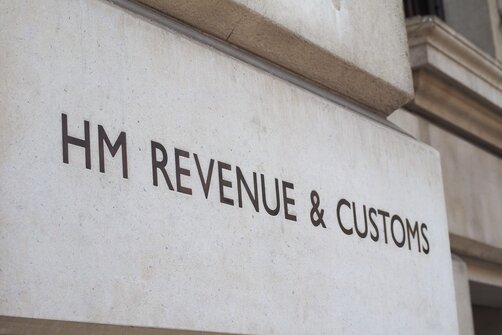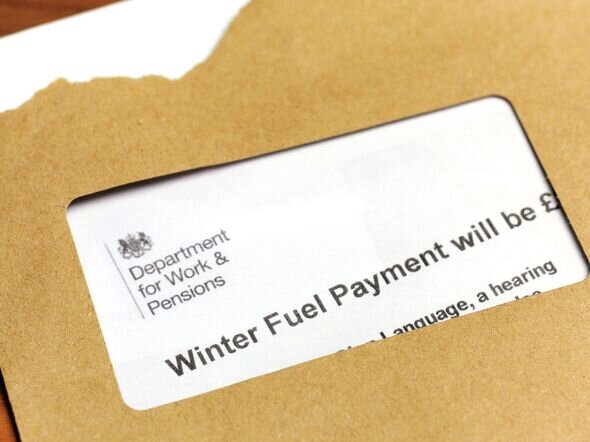How to Handle Unpaid CIS Deductions Effectively

Handling unpaid CIS deductions can be a daunting task for many subcontractors and contractors. The Construction Industry Scheme (CIS) requires contractors to deduct money from a subcontractor’s payments and pass it on to HMRC. Failing to do so can result in significant consequences, both financial and legal. Understanding the steps to resolve these unpaid deductions and ensuring they are correctly registered with HMRC is crucial.
When CIS deductions are not paid and registered, it can create a stressful scenario. Not only can it attract penalties from HMRC, but it may also affect your cash flow and financial planning. This article aims to provide a comprehensive guide on what steps you can take to rectify the situation. By using practical methods and leveraging tools like the Pie Tax App and the expert tax assistants available on the Pie app, you can ensure smooth management of your taxes.
Understand CIS Deduction Responsibilities
Both contractors and subcontractors have responsibilities under the Construction Industry Scheme (CIS). Contractors must register with HMRC, verify subcontractors' employment statuses, and deduct CIS from their payments. These deductions must then be submitted to HMRC, along with monthly returns detailing all payments made. Subcontractors should verify their CIS status with HMRC to ensure they are properly registered and that the correct deductions are made from their payments.


Reconcile Your Payments with HMRC Records
Regularly reconciling your records with HMRC can help you identify discrepancies early and prevent potential issues with your tax filings. By routinely checking your accounts and comparing them with HMRC's records, you can ensure that all your financial activities are accurately reported. This proactive approach allows you to address any inconsistencies promptly, thereby maintaining compliance and avoiding penalties.

According to HMRC, there has been a 15% increase in penalties related to unpaid CIS deductions. This highlights the importance of timely payment and registration.Recent Rise in CIS Penalties

Unpaid CIS deductions can severely impact cash flow. Businesses have reported a 20% reduction in cash reserves due to penalty fees and delayed payments.Impact on Cash Flow

Steps to Resolve Unpaid Deductions
If you find that your CIS deductions have not been paid or registered, the first step is to contact HMRC and explain the situation. Providing them with accurate details and any support documents can help accelerate the process of rectification.
After reaching out to HMRC, it is essential to keep meticulous records of all communications and payments henceforth. Utilise the Pie Tax App to track your deductions and payments efficiently. The app offers seamless integration with HMRC, making it easy to reconcile your accounts and stay compliant with regulations. Additionally, if needed, consult with the expert tax assistants available on the Pie app for specialised guidance.
Registering Your CIS Deductions
Once the unpaid deductions are resolved, the next step is to ensure they are correctly registered with HMRC. Using the Pie Tax App can simplify this process. The app can automatically report your CIS deductions to HMRC, reducing the risk of human error and ensuring compliance.
Additionally, make it a routine to verify the registered deductions periodically. This will prevent future discrepancies and provide peace of mind. Planning regular consultations with the expert tax assistants available on the Pie app can keep your tax affairs in order and mitigate potential issues.

Tips for Handling Unpaid CIS Deductions Effectively

Ensure you have all relevant documentation, including invoices and payment records. Detailed records support your claim and help resolve disputes quickly.Keep Detailed Records

Contact your contractor immediately if deductions go unpaid. Clear and timely communication can often resolve issues without further escalation.Communicate Promptly

Consult with a tax advisor or accountant who specialises in CIS. Professional guidance ensures you're following the correct procedures and maximising your chances of recovery.Seek Professional Advice

Fun Fact About CIS
Did you know CIS was introduced in 1971? Initially designed to combat tax evasion in construction, it’s grown to include countless businesses and subcontractors.
Practical Advice on Dealing with CIS

To effectively manage your CIS responsibilities, always maintain updated records of payments and deductions. Using technology, like the Pie Tax App, can simplify this process tremendously.
If you encounter issues, do not hesitate to consult with the expert tax assistants available on the Pie app. They can offer tailored advice and ensure your compliance with HMRC regulations, thus avoiding penalties.

Maintaining detailed and accurate records of all payments and deductions is vital. This can help you identify any discrepancies early and rectify them promptly with HMRC. Using digital solutions like the Pie Tax App ensures your records are always updated and easily accessible. Additionally, it helps in quick reconciliation with HMRC records.Keep Detailed Records

Engaging with tax experts can save you from potential pitfalls. The expert tax assistants available on the Pie app can provide invaluable support, offering bespoke advice and ensuring compliance. Regular consultations with tax experts can help keep your business ahead in terms of CIS obligations, thus preventing any unwelcome surprises.Consult with Tax Experts
Summary
In summary, managing unpaid CIS deductions and ensuring they’re registered with HMRC is critical to maintaining compliance and avoiding penalties. By staying proactive, utilising digital tools like the Pie Tax App, and consulting with the expert tax assistants available on the Pie app, you can effectively manage your CIS obligations. This not only ensures legal compliance but also aids in smooth financial management and peace of mind.
Using these tools and guidelines, you can be better prepared to handle your CIS responsibilities, making tax season less stressful and more manageable.
Frequently Asked Questions
What should I do if my CIS deductions are unpaid?
If you discover that your CIS deductions are unpaid, contact HMRC immediately with accurate details and any supporting documents. Utilise the Pie Tax App to help track and reconcile your payments.
How can I ensure my CIS deductions are registered with HMRC?
Make sure the contractor you are working for is registered with HMRC for CIS. This ensures they are legally obligated to deduct and submit your CIS payments. Maintain accurate and comprehensive records of all transactions, including invoices and payment receipts. This documentation is crucial for cross-referencing with HMRC records. Contractors should provide you with a CIS deduction statement each month. Review these statements carefully to confirm the deductions and payments match your records. Regularly check your online HMRC account to monitor that your CIS deductions are being reported correctly. You can use the HMRC online services to view your CIS deductions and ensure they align with the deductions your contractor has made.
What penalties can HMRC impose for unpaid CIS deductions?
HMRC can impose several penalties for unpaid CIS (Construction Industry Scheme) deductions. These penalties include:
- Late Filing Penalties: Starting at £100 for each month the return is late. The penalty amount increases the longer the return remains unsubmitted.
- Late Payment Penalties: If CIS deductions are not paid to HMRC on time, these penalties can range from 1% to 5% of the unpaid amounts.
- Interest Charges: In addition to penalties, HMRC can charge interest on late payments.
- Additional Penalties for Errors: If there are inaccuracies in the CIS returns, HMRC can impose penalties depending on whether the error was due to carelessness, deliberate action, or deliberate concealment.
- Compliance Checks and Investigations: Persistent non-compliance can lead to more severe actions, including compliance checks and investigations by HMRC. In extreme cases, this could result in legal action and additional financial penalties.
Can I claim a refund for overpaid CIS deductions?
Yes, if you have overpaid CIS deductions, you can claim a refund when you submit your Self Assessment tax return. Ensure all your records and deduction statements are accurate and up-to-date.
Who can help me resolve unpaid CIS deductions?
A professional tax advisor or accountant specialising in CIS can assist you in resolving unpaid deductions. They can help you navigate HMRC procedures and ensure compliance with CIS regulations. Get started today with the Pie Tax App











